Earn a Certificate in Military Counseling
Clinical Military Counseling Certificate Program Details
- The CMCC Program
- Description
- Course Availability
- Topics
- Learning Objectives
- Instructor
- CE Hours
- How to Complete the Course and Earn the Certificate
- How to Obtain the CMCC Certificate
- Course Policies
- Who Should Attend
- Teaching Methods
(Select each tab above to view specific details of the Clinical Military Counseling Certificate (CMCC) program)
Why Earn the Clinical Military Counseling Certificate (CMCC)?
The CMCC is a certificate of completion program that promotes the highest standard of excellence providing best practices for competent and ethical clinical practice among counselors and other behaviorally-licensed professionals:
- Veterans
- Veterans with disabilities
- Active-duty service members
- Military family members
Five training modules offer clinicians comprehensive knowledge and skill-based material on the military culture, medical, psychosocial, behavioral, mental health, military family life, career transition and reintegration, and military resiliency. The training offers 12 hours of self-paced online continuing education using videotape presentations and interviews with active-duty service members, veterans, and military families. The CMCC training assists counseling and other behaviorally licensed professionals in the assessment, diagnosis, and treatment of mental health conditions in the military versus civilian culture. The unique aspect of this training considers the service member and veteran’s medical-physical health, with co-occurring mental health conditions that impact the mind, body, and spirit.
Course Content:
- Practice guidelines, research, and evidence-based practices for military counseling competence are shared based on the course instructor’s 10th professional text Clinical Military Counseling (American Counseling Association/Wiley Publishing, 2021).
- Over 6 hours of instructor-led videotape presentations with PowerPoint slides, and clickable links to military resources.
- Over 3+ hours of recorded videotape interviews with the following experts:
- Master Chief Petty Officer Pat Frede, U.S. Navy
- Duane France, MA, MBA, LPC, Executive Director, Colorado Veteran's Health and Wellness Agency. Director of Veteran Services, Family Care Center, Colorado Springs. Founder and Host of Head Space and Timing. Author of "Combat Vet Don't Mean Crazy: Veteran's Mental Health in Post-Military Life.
- Ellen Hey, Family Nurse Practitioner, Army Lt. Col. (Ret.)
- Jane McNeill, M.S., LPC-A, Military Spouse
- Dr. Noel Ysasi, U.S. Navy Veteran
- Bill Butler, M.S., LPC, NCC, Vet Center- Greenville, NC, U.S.M.C. MSgt (Retired)
- A 65-item multiple-choice certificate exam (can be taken until 80% of questions are answered correctly).
Online training is self-paced, and participants have up to 6 months to complete it. - 12 clock hours of continuing education credit earned across multiple disciplines.
- An official CMCC “Certificate of Completion” (printed from your computer at the completion of the course).
This is a non-interactive, self-study course.
You have six months to access online courses from the time of purchase.
Module I: The Military Culture
Module II: Mental Health & Substance Use Disorders
Module III: Medical and Psychosocial Aspects and Military Families
Module IV: Vocational Rehabilitation and Military Transition
Module V: Cultivating Military Resiliency of the Mind, Body, & Spirit
- Identify the unique within-group cultural differences of Army, Navy, Marines, Air Force, National Guard, Coast Guard, Space Force, and Active Reservist.
- Explain the differences in the assessment, diagnosis, and treatment of military vs. civilian or community mental health and related services.
- Recognize evidence-based treatment protocols for cultivating optimal mind, body, and spiritual well-being after exposure to combat operational stress/trauma.
- Identify the unique psychological, emotional, and mental health issues related to active-duty personnel, veterans, veterans with disabilities, and military families.
- Discuss the application of evidence-based mental health treatment services to active-duty personnel, veterans, veterans with disabilities, and their family members.
- Recognize how to assess, diagnose, and treat mental health conditions in the military vs. civilian culture.
- Identify the unique medical, physical, psychological, social, emotional, spiritual, vocational, mental health, and cultural issues associated with a variety of chronic illnesses and disabilities among active-duty personnel, veterans, and veterans with disabilities.
- Explain the application of evidence-based psychosocial treatment services and resources available to active-duty personnel, veterans, veterans with disabilities, and military family members.
- Recognize the psychosocial adjustment issues that hinder the service member or veteran’s goals of education, career, independence, environmental accessibility and how societal stigma and negative attitude can reduce opportunities for optimal well-being.
- Identify the psychosocial impact that career transition and reintegration have on veterans and veterans with disabilities and how career development strategies can be facilitated to increase educational and career opportunities.
- Explain how to utilize and apply career and vocational assessments and perform a transferable skills analysis for those in transition from military to civilian life.
- Apply career counseling strategies such as career resiliency portfolio, job seeking, interviewing, and other career development skills for a successful transition.
- Recognize the psychosocial adjustment issues that hinder the veteran and disabled veteran’s goals of education, career, independence, environmental accessibility, and how to counter stigma and negative attitude in the workplace.
- Identify the psychosocial phases of healing the mind, body, and spirit of active duty within the deployment cycle, veterans, and veterans with disabilities.
- Explain how to utilize mental health resources for coping and resiliency skills and posttraumatic growth among service personnel and veterans.
- Apply specific models of resiliency training that cultivate a transformational journey of the mind, body, and spirit.
Mark A. Stebnicki, Ph.D., LCMHC, DCMHS, CRC, CMCC is Professor Emeritus and former Coordinator of the Military and Trauma Counseling (MTC) Certificate Program which he developed in 2015 in the Department of Addictions and Rehabilitation at East Carolina University. Dr. Stebnicki also developed the national Clinical Military Counseling Certificate (CMCC); a 12 hr CE program offered nationally through the Telehealth Certificate Institute. Dr. Stebnicki has been a counselor educator, researcher, practitioner with over 30 years’ experience in rehabilitation and mental health. He has practiced and published in the areas related to stress, traumatic stress, disaster mental health response, and the psychosocial aspects of chronic illness and disability. His primary focus is working with military service members, veterans, veterans with disabilities, and military families. Dr. Stebnicki has published 10 professional textbooks most recently he published two books in 2021 through the American Counseling Association/Wiley Publishing titled: Clinical Military Counseling: Guidelines for Practice and Counseling Practice During Phases of a Pandemic Virus. He also has published 40 journal articles and book chapters, and has provided over 100 presentations nationally, regionally, and statewide. He has served on many statewide and national professional counseling boards.
Credit Hours:
This course provides 12 credit hours
Counselors: Telehealth Certification Institute, LLC has been approved by NBCC as an Approved Continuing Education Provider, ACEP No, 6693. Programs that do not qualify for NBCC credit are clearly identified. Telehealth Certification Institute, LLC is solely responsible for all aspects of the programs.
Telehealth Certification Institute, LLC is recognized by the New York State Education Department's State Board for Mental Health Practitioners as an approved provider of continuing education for licensed mental health counselors. #MHC-0048. Approval renewal date: 1/31/2026
Marriage and Family Therapists: Many MFT licensing boards accept our courses or one of the approvals which we have from professional associations. You can check with your board to determine if this course would be accepted by your licensing board.
Social Workers: Telehealth Certification Institute LLC, #1609, is approved to offer social work continuing education by the Association of Social Work Boards (ASWB) Approved Continuing Education (ACE) program. Organizations, not individual courses, are approved as ACE providers. State and provincial regulatory boards have the final authority to determine whether an individual course may be accepted for continuing education credit. Telehealth Certification Institute LLC maintains responsibility for this course. ACE provider approval period: 05/02/2021 – 05/02/2024. Social workers completing this course receive 12 clinical continuing education credits.
Telehealth Certification Institute, LLC is recognized by the New York State Education Department's State Board for Social Work as an approved provider of continuing education for licensed social workers #SW-0435. Approval renewal date: 2/28/2026
Addiction Professionals: Telehealth Certification Institute is an approved provider of continuing education by NAADAC, the Association for Addiction Professionals, provider #193104. Full attendance is required; no partial credit will be awarded for partial attendance.
Psychologists: Telehealth Certification Institute LLC is approved by the American Psychological Association to sponsor continuing education for psychologists. Telehealth Certification Institute LLC maintains responsibility for this program and its content.
Other Professionals: This course qualifies for 720 minutes of instructional content as required by many national, state and local licensing boards and professional organizations. Retain your certificate of completion and contact your board or organization for specific filing requirements.
This is a non-interactive, self-study course.
To receive your certificate of completion you must complete the course in its entirety.
Online courses are completed by registering, logging in, navigating to your course using the menu (My Courses – the Course Title), completing all of the modules, completing and passing the post-tests, and completing the course evaluation.
Live Webinar courses are completed by registering, logging in to this website, navigating to your course using the menu (My Courses – the Course Title), attending the full course via webinar, submitting your attendance, and completing the course evaluation online.
Psychologists and other professionals seeking CE credit through our approval with the American Psychological Association are asked, but not required, to complete the course evaluation before obtaining their certificate of completion, however passing a post-test for online self-study courses, and submitting one's attendance for live on-site and live webinars is required.
You can receive your certificate of completion by logging onto this website, navigating to the course using the menu (My Courses – the Course Title), scroll to the bottom of your course, and click on your certificate to either download it or print it.
Directions for completing a course can be found by clicking here.
![]()
The process of obtaining the certificate:
If you are an approved professional (click here to view the full list of approved professional types), you will receive the CMCC certificate by completing this course.
Accommodations for Individuals with Disabilities
Click here to view our Accommodations for Individuals with Disabilities.
Cancellation Policy
Refunds are offered within the first 30 days for courses which have not been completed. There is a 10% service fee for refunds.
Grievance Policy
Eligibility Requirements:
Anyone who serves those connected to our military can benefit from this course.
Teaching methods for this course include recorded lectures, videos, a post-test, and a course evaluation. The courses may include required reading.
This program was updated January 12, 2022
Why clinicians choose to be trained in Military Couseling?
Help active duty service members, veterans, and their families heal and meet their goals.
Get recognized for your competence in military counseling and related services by earning your CMCC Certificate.
Become competent in the assessment, diagnosis, and treatment in military counseling and related services.
Increase your knowledge, awareness, and skills of the unique cultural differences in working with those connected to our military.
Become more marketable as an expert in military counseling.
Learn how to address service members and veterans' medical, psychosocial, behavioral, cultural, mental health, family life, vocational, and career transition needs.
About The Clinical Military Counseling Certificate Program (CMCC)
Why Earn the Clinical Military Counseling Certificate (CMCC)?
The CMCC is a certificate of completion program that promotes the highest standard of excellence providing best practices for competent and ethical clinical practice among counselors and other behaviorally-licensed professionals:
- Veterans
- Veterans with disabilities
- Active-duty service members
- Military family members
Five training modules offer clinicians comprehensive knowledge and skill-based material on the military culture, medical, psychosocial, behavioral, mental health, military family life, career transition and reintegration, and military resiliency. The training offers 12 hours of self-paced online continuing education using videotape presentations and interviews with active-duty service members, veterans, and military families. The CMCC training assists counseling and other behaviorally licensed professionals in the assessment, diagnosis, and treatment of mental health conditions in the military versus civilian culture. The unique aspect of this training considers the service member and veteran’s medical-physical health, with co-occurring mental health conditions that impact the mind, body, and spirit.
Earning a certification, credential, or certificate in a specialty validates your knowledge and expertise and demonstrates your commitment to providing high-quality, evidence-based treatment. Upon completing the program, you'll receive your Clinical Military Counseling Certificate (CMCC) to be added to your existing credentials.

About the Instructor
Mark A. Stebnicki, Ph.D., LCMHC, DCMHS, CRC, CMCC is Professor Emeritus and former Coordinator of the Military and Trauma Counseling (MTC) Certificate Program which he developed in 2015 in the Department of Addictions and Rehabilitation at East Carolina University. Dr. Stebnicki also developed the national Clinical Military Counseling Certificate (CMCC); a 12 hr CE program offered nationally through the Telehealth Certificate Institute. Dr. Stebnicki has been a counselor educator, researcher, practitioner with over 30 years’ experience in rehabilitation and mental health. He has practiced and published in the areas related to stress, traumatic stress, disaster mental health response, and the psychosocial aspects of chronic illness and disability. His primary focus is working with military service members, veterans, veterans with disabilities, and military families. Dr. Stebnicki has published 10 professional textbooks most recently he published two books in 2021 through the American Counseling Association/Wiley Publishing titled: Clinical Military Counseling: Guidelines for Practice and Counseling Practice During Phases of a Pandemic Virus. He also has published 40 journal articles and book chapters, and has provided over 100 presentations nationally, regionally, and statewide. He has served on many statewide and national professional counseling boards.
Military Counseling Courses
Ready to Begin offering Military Counseling Services?
Military Counseling Articles
Help Us Support Veterans
Due to the critical lack of specialized competency-based training for clinicians, veterans face substantial barriers to receiving adequate mental health counseling and related services. The lack of specialized training in working with veterans, veterans with disabilities, and their families can lead to misdiagnosis and inaccurate assessment, inappropriate and ineffective treatment, attributing stereotypes, and persevering myths about veterans, which hinder their motivation for seeking counseling services. The current lack of comprehensive training in military counseling and related services, both during and after clinicians' graduate programs, is a significant concern. A national survey in 2016 of all nationally accredited counselor education graduate programs reported that only one program offered a certificate program in military trauma counseling. We developed and provide the Clinical Military Counselor Certificate (CMCC), which is an evidence-based, advanced, and comprehensive...
Read More
History and Validation of the CMCC Program
BRIEF HISTORY AND PROGRAM DESIGN OF CLINICAL MILITARY COUNSELING CERTIFICATE (CMCC) Brief History and Design of CMCC The military community has become an emerging and major priority for mental health counseling and related services. Many active duty service members who transition to civilian life require ongoing medical, psychosocial, vocational, and mental health support. The military community is clearly a unique culture because of its language, rituals, organizational structure, values, mission, as well as differences that exist within each of the various branches of the Armed Forces (e.g., Army, Navy, Marines, Air Force, Coast Guard, National Guard, Reservists). The CMCC mission began in North Carolina as a recognition that providing mental health and counseling-related services to North Carolinians were critical to serving the 35% of its residents who comprised active duty service members, veterans, veterans with disabilities, family members, and dependents. There are few...
Read More
How To Become A Military or Veterans Counselor
INTRODUCTION There is a paucity of literature in counseling and psychology that addresses how to facilitate therapeutic interactions with the military culture particularly in the assessment, diagnosis, and treatment of issues related to military mental health. The question becomes “How can I take what I know in counseling and psychology, as a civilian or community mental health counselor, and apply this to facilitating military mental health strategies and techniques?” This is a dilemma particularly for those who have had little or no opportunity to provide counseling and related-services to active duty personnel, veterans, veterans with disabilities, and family members. The following material describes credentials offered in the clinical military counseling area, occupational characteristics of different professions and settings that provide military counseling services, and our Clinical Military Counselor Certificate (CMCC) program.
Read More
Military Counseling Competency Training
There is a paradigm shift today in the counseling and psychology profession. How do we translate the theories, clinical strategies, and treatments for military service members, veterans, and their family members? The Clinical Military Counselor Certificate (CMCC) program will help you translate your clinical practice into the cultural lens of the military. My October article addresses the complex issues challenging both clinicians and military personnel.
Read More
Military Myths and Negative Stereotypes
Materials Ready to Explore (MRE) Practice Guidelines Societal Myths, Stereotypes, and Stigma of the Military Culture Mark A. Stebnicki, Ph.D., LCMHC, DCMHS, CRC, CMCC Click here for PDF INTRODUCTION The purpose of this MRE is to examine some of the more prevalent societal and clinical counseling myths, perceptions, and attitudes regarding the military culture. It is well documented that negative attitudes and perceptions impact the service members’ and veterans’ motivation for seeking medical and mental health treatment. Cultural myths and stereotypes regarding the military community can be both negative and positive. Some individuals in American society as well as clinical counselors attribute the characteristics and traits of military service members and veterans as possessing a high level of courage, honor, loyalty, confidence, toughness, and resiliency. Others in society may portray the military culture as possessing the potential to act in violence, have low impulse control, or...
Read More
MRE Practice Guidelines: The Military Intake Interview
MRE Practice Guidelines: The Military Intake Interview Mark A. Stebnicki, Ph.D., LPC, DCMHS, CRC, CMCC Click here for PDF Introduction to the Military Intake Interview The intake interview is critical in understanding your service member or veterans’ current medical, physical, psychosocial, vocational, family, and socio-cultural status as it relates to their military service. Military-specific intake interview questions are one of the most effective means to assess a range of critical life-events as it relates to your clients’ military life. Most standardized diagnostic tools do not address military mental health, career development as the service member transitions to civilian life, family dynamics within the deployment cycle, and other critical elements in military life. Thus, competent CMCC’s use person-centered skills facilitating attending, listening, and empathic responding to build rapport and gain the circle of trust with their military clients.
Read More
New Certificate in Clinical Military Counseling
Press release download: Click here Professional counselors, psychologists, social workers, and other behaviorally-licensed professionals can earn the 12-hour CE Clinical Military Counseling Certificate (CMCC) through the Telehealth Certificate Institute of New York. The mission of the CMCC credential is to provide training for professional counselors, psychologists, social workers, and other behaviorally-licensed professionals who serve or want to serve, (consider taking out just to make this section less wordy) active duty personnel, veterans, veterans with disabilities, and their family members. Graduate students engaged in their internships may also enroll in the CMCC program.
Read More
Spirituality, Moral Injury, and Trauma in Military Life
MRE Guidelines for Practice Spirituality, Moral Injury, and Trauma in Military Life Mark A. Stebnicki, Ph.D., LCMHC, DMHCS, CRC, CMCC INTRODUCTION There is a growing body of literature in military psychology, moral injury, and trauma which suggests a strong association between having good spiritual well-being and military resiliency and readiness (Doehring, 2019; Smith-MacDonald et al., 2017). Extraordinary stressful and traumatic events in military life have long-term implications for service members’ and veterans’ mental, physical, and spiritual well-being. There are many experiences in warfighting that service members and veterans will never disclose to others outside their units or as reflected in after-action reports. Exposure to frequent killing of enemy combatants, the threat of being attacked, killed, or captured, witnessing death and injury, and handling the injured and dead bodies of unit members, civilians, and enemy combatants change the military service member in a...
Read More
Why Military Counseling Training is Needed
There is a critical lack of both advanced and comprehensive training in military counseling and related services, both during and after clinicians' graduate programs. The lack of specialized training in working with veterans, veterans with disabilities, and their families can lead to misdiagnosis and inaccurate assessment, inappropriate and ineffective treatment, shaming veterans who seek services and deterring veterans from seeking further services. A national survey in 2016 of all nationally accredited counselor education graduate programs reported that only one program offered a certificate program in military trauma counseling (click here to see the full survey). The onboarding training that clinicians are receiving through organizations that provide military counseling does not appear to be either advanced or comprehensive. There are also substantial barriers to veterans and veterans with disabilities who seek services and for clinicians offering care. Veterans often seek...
Read More


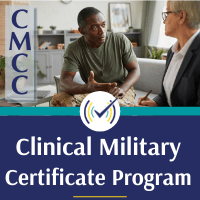
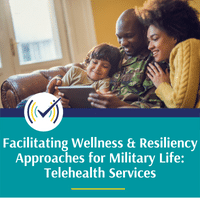
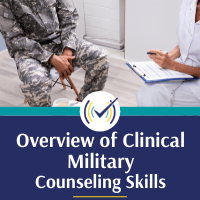
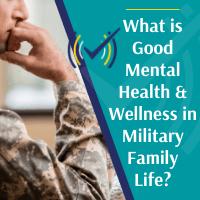
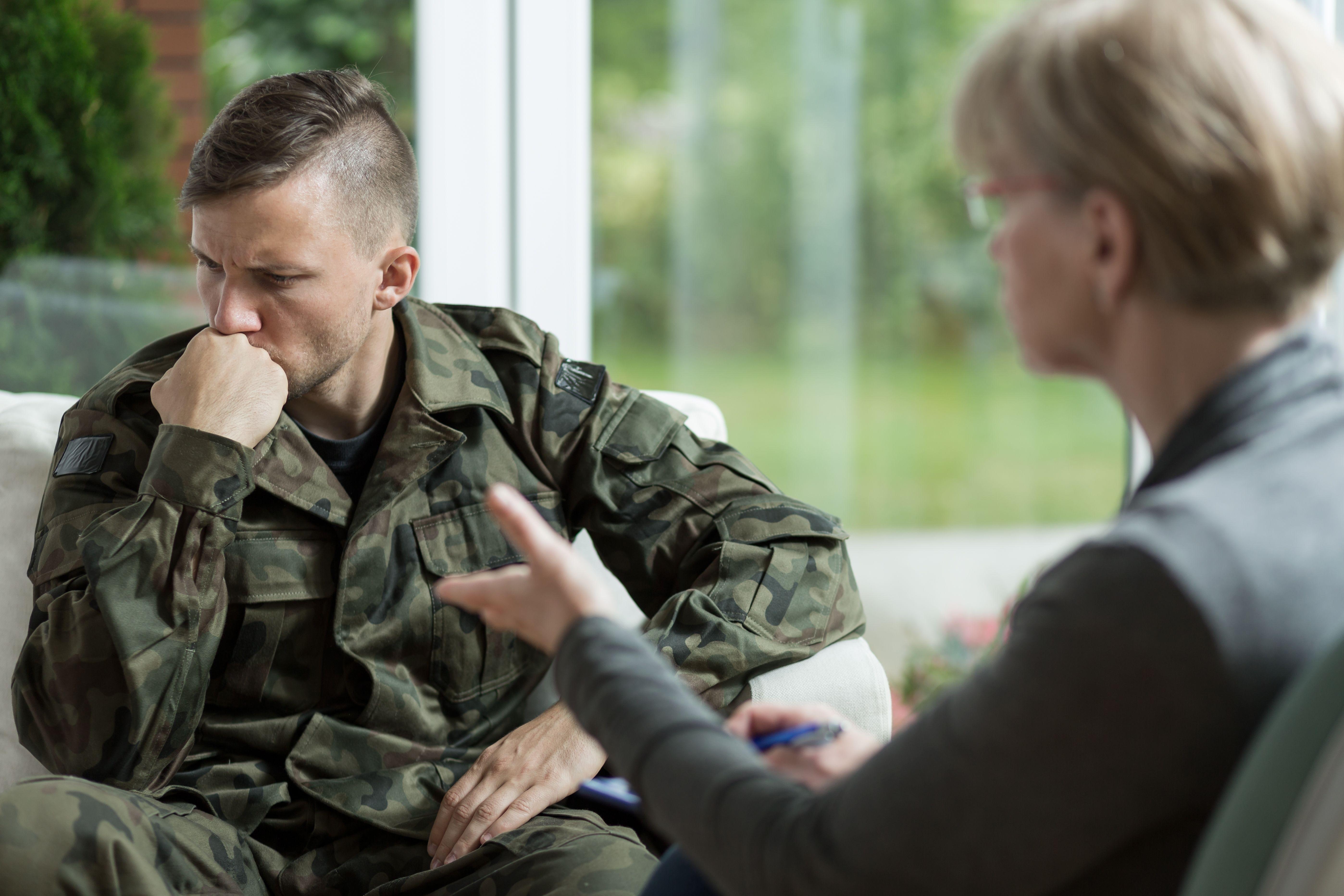
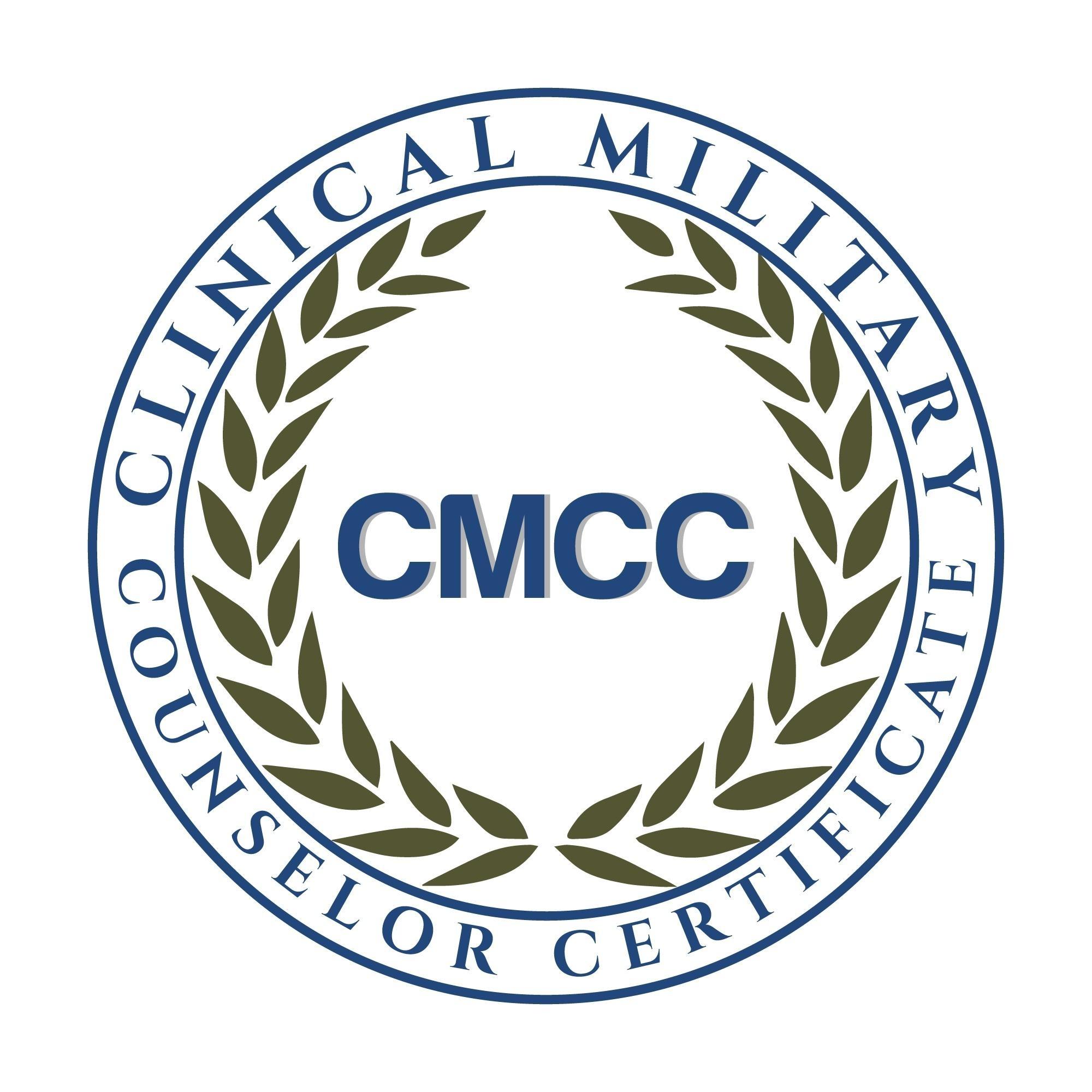
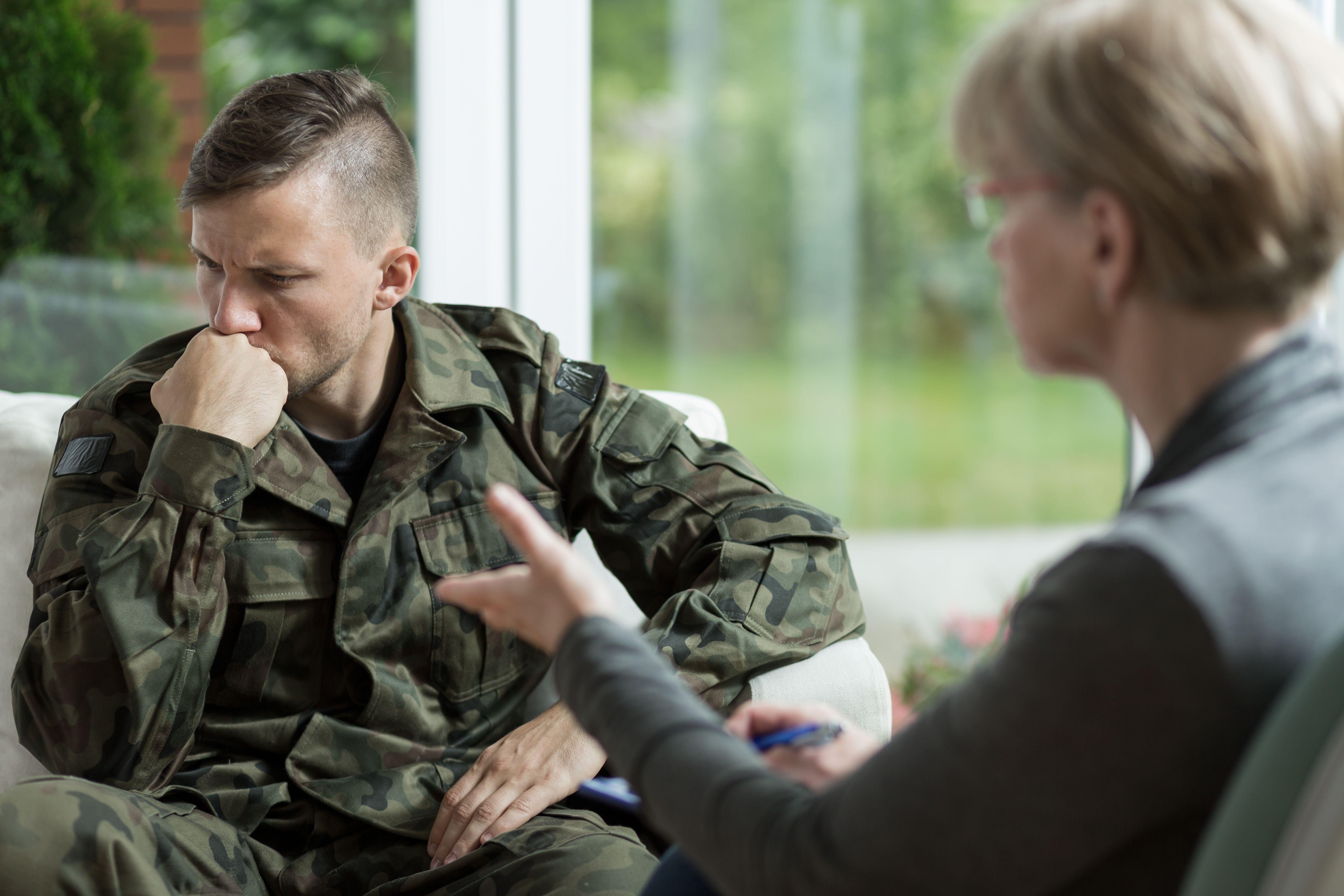


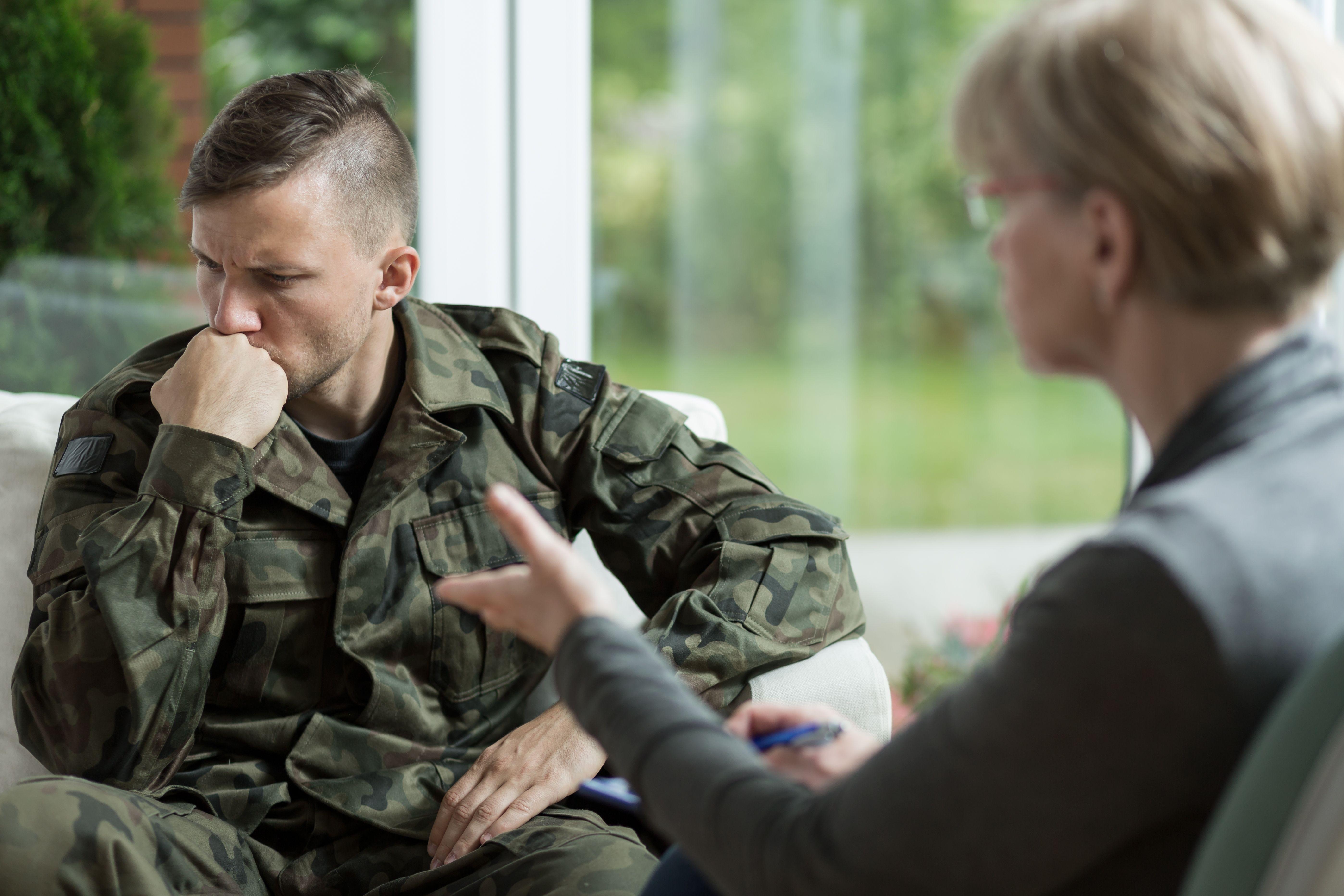
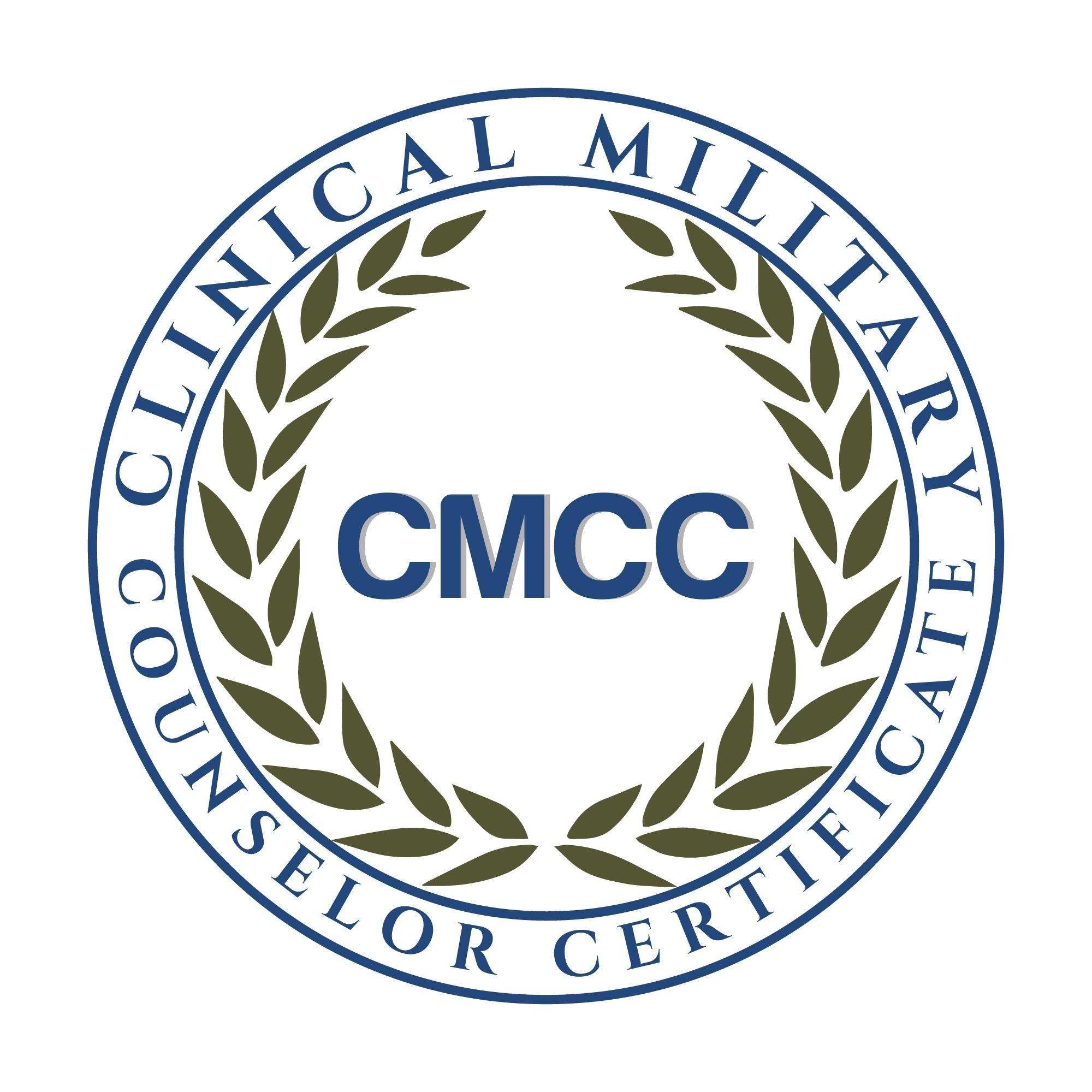

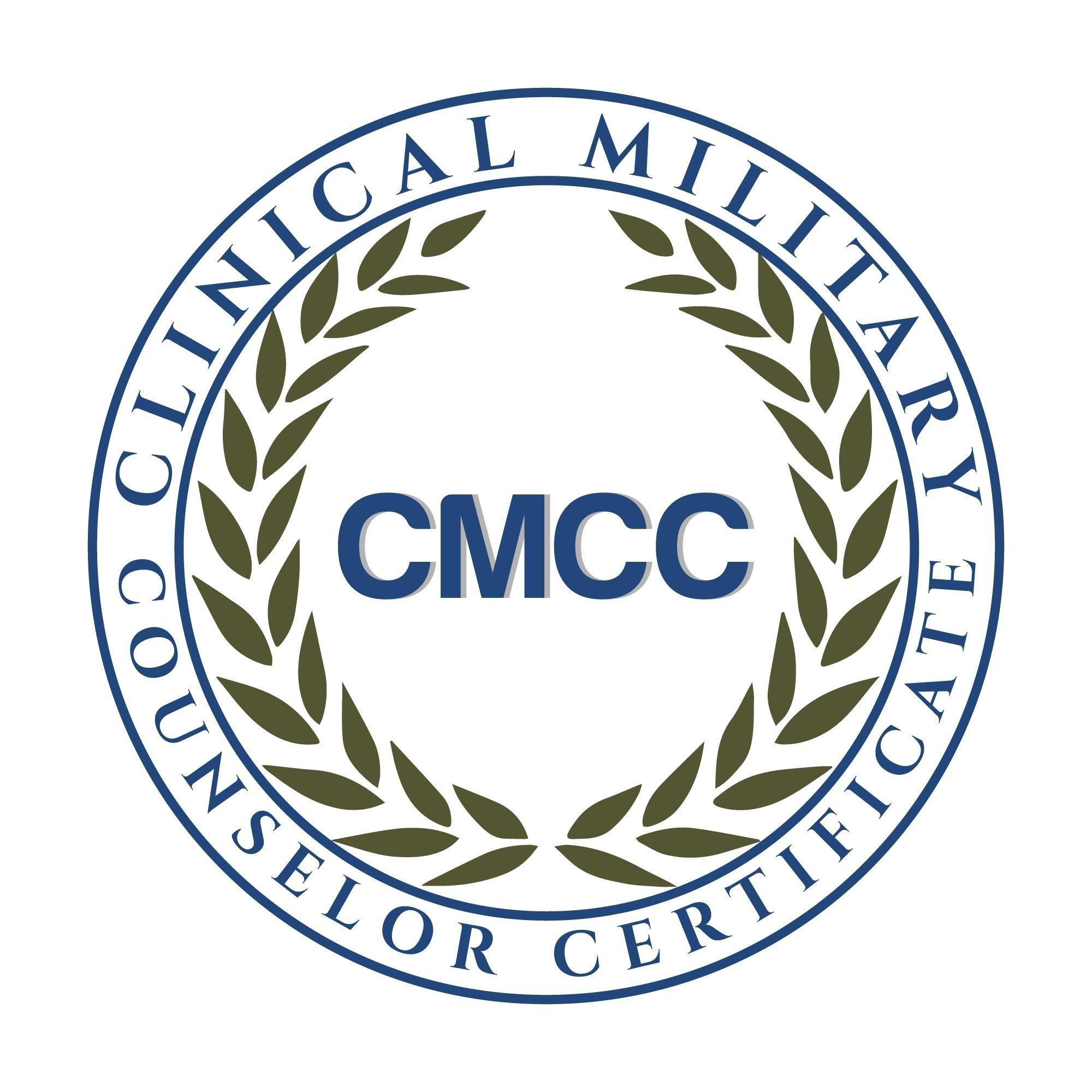

The course was so informative and I was glued to my screen for the entire duration. I received so much knowledge concerning ethics in telehealth and I am greatly encouraged to read about all the standards and policies that pertain to my practice. Thank you!.